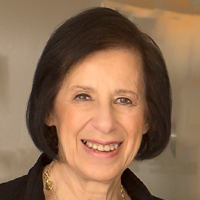
We are just about far enough beyond America’s most recent major Ponzi scheme to wonder if there are people who aren’t aware of the scheme at all. But nearly two decades later, being prepared to answer for money manager Bernard Madoff’s sordid tale still remains important for all financial advisers. I was recently reminded of this when a client and professional peer asked me, “How do I know you’re not Madoff?”
First, a Brief Recap
In 2008, Madoff, former chairman of the Nasdaq Stock Market, was charged with running a longstanding Ponzi scheme after his two sons turned him in. Both sons worked for their dad’s money management company, on another floor, and claimed they knew nothing about the years-long fraud until then. After duping wealthy people worldwide, including a few celebrities, Madoff had nowhere to hide. In 2009, he pleaded guilty to 11 felony charges, including securities fraud, wire fraud, mail fraud and money laundering.
Madoff was caught when he could no longer “pay clients” their requested redemptions — not even by taking in money from newer customers. He was convicted in 2009 and sentenced at age 71 to the maximum penalty of 150 years in prison. His attempts at gaining a presidential pardon and early release all failed.
Madoff’s devious actions and severe conviction became a warning flag for U.S. investors after his clients were found to have suffered $65 billion in paper losses. His clients included many individuals, institutions, charities and pension funds that faced financial ruin.
Now, 15 years later, much of that money has been recovered through sales of Madoff’s properties and other assets, as well as through lawsuits against people who profited from the fraud. The funds have been distributed to Madoff’s victims.
To entice investors, one thing this hustler did was to deny large investors access to the workings of his fraudulent company when they first sought to invest with him. He also offered strong returns in both good times and bad.
Many in the financial world didn’t trust him. Suspicious investment professionals notified federal authorities about Madoff several times. Most notably, whistleblower Harry Markopolos, a financial analyst, warned authorities as early as 2000 and again in 2005. But for years, no one took action against this seemingly successful and powerful man.
High Returns No Matter What
When I served as a volunteer treasurer for a religious organization a number of years ago, one of our wealthy benefactors told me that we were wasting our time deciding whether to invest the organization’s money in money market funds, certificates of deposit (CDs) or savings accounts. He boasted that he was receiving returns in the high teens each year from his “investment guy,” whether markets were up or down.
That worried me. I told him that that was his personal decision, but we wouldn’t be investing that way for a nonprofit institution. His “guy” turned out to be Bernie Madoff. We at the religious institution continued to earn a more modest return but kept our account safe from disaster.
Great Surprise
So, imagine my great surprise in 2023, 15 years after Madoff was caught, when my client and peer asked me, as mentioned earlier, “How do I know you are not Madoff?”
The only other time I had heard that question was a decade earlier — from a prospective client who had vetted us in many ways during multiple visits. At that time, Madoff recently had been in the news, so I wasn’t surprised. Actually, I considered the query to be smart; the potential client and his board members were meticulous in their due diligence.
At that time, I viewed it as a softball question. I responded that, unlike Madoff, we had no money on the premises. We kept only one set of books, we had a third-party administrator hold clients’ money in their own names, and the administrator sent clients monthly balance statements, I explained. The careful prospect ultimately chose us to manage his and his associates’ money.
However, last year’s query startled me because Madoff was no longer top of mind. Furthermore, this client had known our leaders and our firm for decades. He had also thoughtfully chosen to do business with us — and he was in a profession related to ours.
Bernie Madoff’s ruinous case seemed to be laid to rest (as was he, in 2021), and we have a 40-year-old firm with hundreds of happy clients. So, I wondered, how we could be asked such a direct question? And how we could best prove the undeniable answer?
Take a Deep Breath Before Responding
Here are some actions you might take upon hearing a similar question from clients you’re managing money for, or may be in the future:
- Don’t be insulted. These types of questions disclose more about a prospective client’s insecurity and uncertainty than they reflect directly on you.
- Be patient and understanding. You have been given an opportunity to lead the prospective client to a comfortable resolution for both of you.
- Talk calmly with the prospect. Help determine their needs, their fears and whether they will turn out to be a good fit for you and your firm.
In my opinion, prospects deserve congratulations for doing their due diligence and voicing their financial anxieties. And for weighing meaningful considerations when selecting an advisor.
Additional Reading: Teach Women to Think for Themselves
Build Trust: Turn Lemons into Lemonade
If an uncomfortable question about your firm’s credibility comes your way, try these recommended responses:
- Address the uncertainty and concern that the prospects are exhibiting. Ask why they think you may be deceiving them. Is it a serious concern based on something they have seen or heard about your firm? Or is it speculation?
- Tell them about the third-party provider you’ve chosen to work with for transparency and the independent account statements they will receive from this firm.
- Note that money held away from your firm at brokerages such as Schwab, Fidelity and other well-known financial institutions can’t be trifled with easily.
- Remind them that they can end the relationship or withdraw their money at any time.
- Talk to them about account insurance at banks or brokerage firms you work with.
- Take the time to discuss your credentials, your longevity at your job, your background, your memberships and the ethics courses you take regularly to maintain your designation.
- Be calm, be serious, and tell them to take their time to decide and think it over.
- Offer to introduce them to satisfied clients as referrals — people who are in their profession, community or neighborhood.
- Tell them you can neither promise nor predict returns in any particular year, but that, overall, you will do your best to help them reach their financial goals.
- Work to form a bond with your prospects – one that leads to trust and forms the basis of a strong relationship.
Demonstrating to clients, through words and actions, that your RIA firm is credible will remain essential — even after Bernie Madoff’s massive deceit fades from memory.
Karen Caplan Altfest PhD, CFP®, is a principal advisor at Altfest Personal Wealth Management. She helps many of the firm’s clients with a variety of investment and financial planning issues and specializes in helping women clients and widows. Karen’s Financially Savvy Woman programs, including the Women’s Financial $pa™, are popular with clients. Her focus is to educate and empower women.







